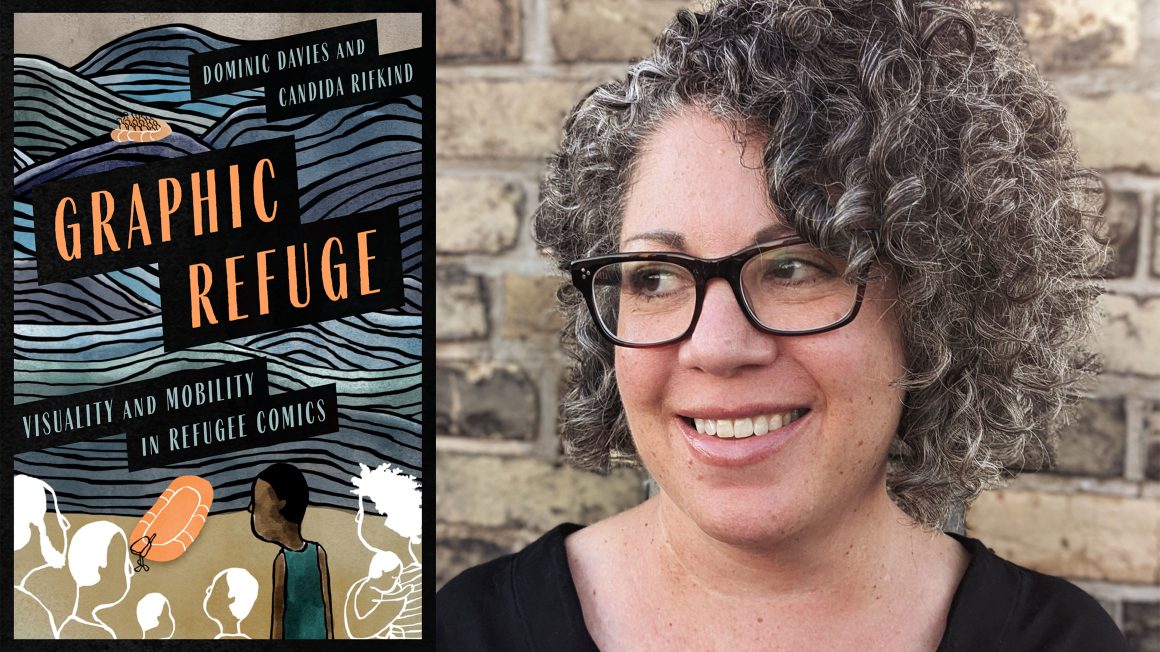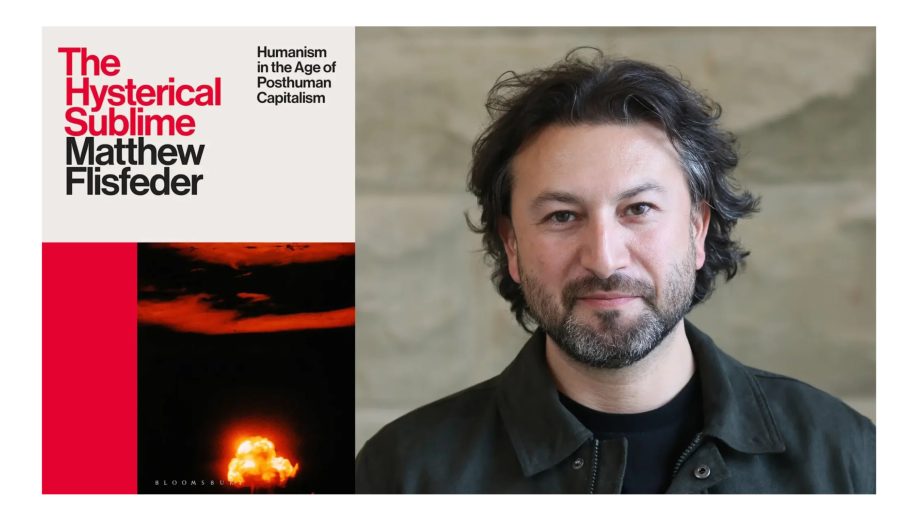University of Winnipeg comics scholar Dr. Candida Rifkind’s new book, Graphic Refuge: Visuality and Mobility in Refugee Comics, has just been published by Wilfrid Laurier University Press.
A prominent figure in the study of non-fiction comics and graphic novels, Dr. Rifkind co-wrote the book with Dr. Dominic Davies of City St. George’s, University of London.
Dr. Rifkind and Dr. Davies are leading scholars of non-fiction comics. They previously co-edited a landmark volume of essays, Documenting Trauma in Comics: Traumatic Pasts, Embodied Histories, and Graphic Reportage. Their timely new study, Graphic Refuge, explores recent graphic narratives about a range of refugee experiences, from war, displacement, and perilous sea crossings to detention camps, resettlement schemes, and second-generation diasporas.
Comics artists, including refugees themselves, are using this popular medium to go beyond stereotypes and clichés…
Dr. Candida Rifkind
According to Dr. Rifkind, comics have the power to redraw the ways migrants, asylum seekers, and refugees are visualized in the public imagination.
“Comics artists, including refugees themselves, are using this popular medium to go beyond stereotypes and clichés, and to go where cameras often can’t, to redraw refugee lives in all their richness and complexity,” she said.
Beyond simply affirming the “humanity” of the refugee, these comics demand readers apprehend the historical construction of categories such as “citizen” and “refugee” through systems of empire, settler colonialism, and racial capitalism.
Through close readings of work by diverse artists including Joe Sacco, Sarah Glidden, Don Brown, Olivier Kugler, Jasper Rietman, Hamid Sulaiman, Leila Abdelrazzaq, Thi Bui, and Matt Huynh, Graphic Refuge shows how comics challenge dominant representations of the displaced to bring a radical politics of refugee agency and refusal into view.
Refugee scholar Vinh Nguyen writes in his forward that the comics medium allows readers to not only visualize the lives of refugees, but also refocuses the lens on non-refugee citizens, “we who can sleep under warm cover at night,” and interrogates their perceptions, aspirations, and beliefs.
In line with her noted scholarship and her new book, Dr. Rifkind was the keynote speaker at the annual conference of the Canadian Society for the Study of Comics in Toronto earlier this month. Her presentation was entitled, Refracted Realities: Refugee Lifeworlds in Comics.





